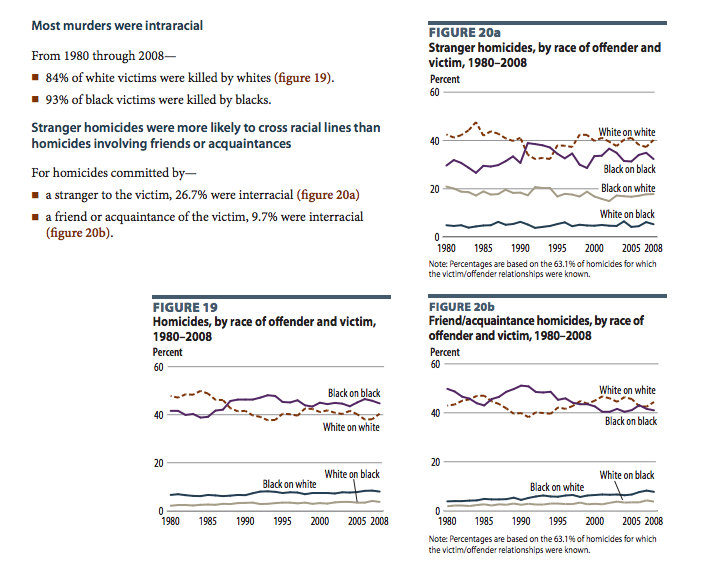The phrase includes race and is factual—although fatally incomplete.
As well, many of the most credible and critical voices confronting racism are apt to concede the looming problem of blacks killing blacks—such as Ta-Nehisi Coates arguing that "[w]hen policing is delegitimized, when it becomes an occupying force, the community suffers":
It will not do to note that 99 percent of the time the police mediate conflicts without killing people anymore than it will do for a restaurant to note that 99 percent of the time rats don’t run through the dining room. Nor will it do to point out that most black citizens are killed by other black citizens [emphasis added], not police officers, anymore than it will do to point out that most American citizens are killed by other American citizens, not terrorists. If officers cannot be expected to act any better than ordinary citizens, why call them in the first place? Why invest them with any more power?The issue is not the fact of black on black crime, but that crime and homicide are overwhelmingly within race:

U.S. Department of Justice: Homicide Trends in the United States, 1980-2008 (November 2011).
Crime and homicides are the result of familiarity and proximity. Our families, our social circles, our neighborhoods, and our communities are far more dangerous to each of us than any stranger or any unfamiliar territory. And as long as familiarity and proximity remain mostly segregated, our crimes and murders are likely to remain within the same race.
To utter "black on black" crime in order to claim a causal relationship between race and crime is dishonest. Race in crime is a marker, not a cause agent, especially not a cause agent unique to any race.
No comments:
Post a Comment